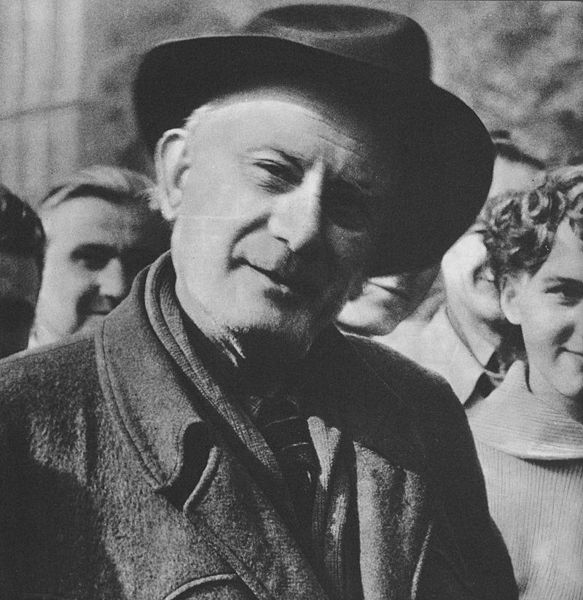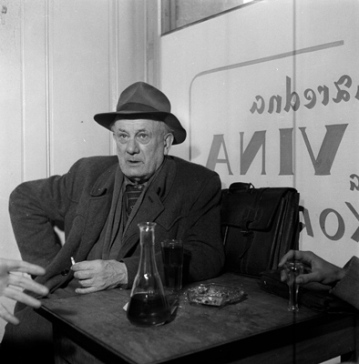<Back to Index>
- Physicist William John Macquorn Rankine, 1820
- Poet Augustin "Tin" Ujević, 1891
- 6th Prime Minister of the Cape Colony Cecil John Rhodes, 1853
PAGE SPONSOR


Augustin "Tin" Ujević (July 5, 1891 – November 12, 1955) is considered to be one of the greatest Croatian poets of all times.
Ujević was born in Vrgorac, a small town in the Dalmatian hinterland, and grew up in what were then the provincial towns of Imotski and Makarska. He completed classical gymnasium in Split. Ujević spent his turbulent Lehrjahre in the Zagreb bohemian milieu, in the circle of the central figure of Croatian early modernism, the revered and slandered doyen of fin-de-siècle aestheticism, Antun Gustav Matoš. Briefly embroiled in the activities of Yugoslav nationalism (1912 – 1916), Ujević left politics for good, spending the rest of his life as a quintessential bohemian wanderer, residing and blasphemously rioting in Sarajevo, Mostar, Belgrade, Split and, finally, Zagreb.
Ujević distinguished himself in three fields: as a translator, essayist and feuilltonist and poet. He translated numerous works of poetry, novels and short stories into Croatian (Walt Whitman, Marcel Proust, Joseph Conrad, Benvenuto Cellini, George Meredith, ...). He wrote more than ten books of essays, poetry in prose and meditations — but his enduring strength lies chiefly in his monumental poetic opus. Having absorbed virtually all of the Western poetic tradition (from Dante and Johann Wolfgang von Goethe to Charles Baudelaire, Rimbaud, Whitman and Ezra Pound) and all the Croatian greats, including Marko Marulić and Ivan Gundulić,
Ujević created a Protean poetic oeuvre of inimitable flavor and
inescapable grandeur. His chief theme can be termed as everything
under the sun and
beyond. From pantheist mysticism to humble Christian spirituality, from
celebration of corporeality and ecstatic unity of human, non-human and
the divine to meditative repose, from the ironic verse making burlesque of modern technology driven civilization to the tender verbal music hallowing ancient Dalmatian hamlets,
from the powerful expression of erotic yearning to the resignation to
the fates of human condition — Ujević's poetry is a polymorphous vision
of life, blend of often conflicting traditions ranging from the Mediterranean ideal of harmonious beauty and modern existentialist sensibility expressed in the verses of unmatched virtuosity and profundity. Ujević held a post in the Independent State of Croatia in
which he worked as a translator, and continued to publish some
material. Because of this, the communist regime in Yugoslavia prevented
him from continuing with his literary career for several years. Ujević died on November 12, 1955 and is buried at Mirogoj Cemetery.